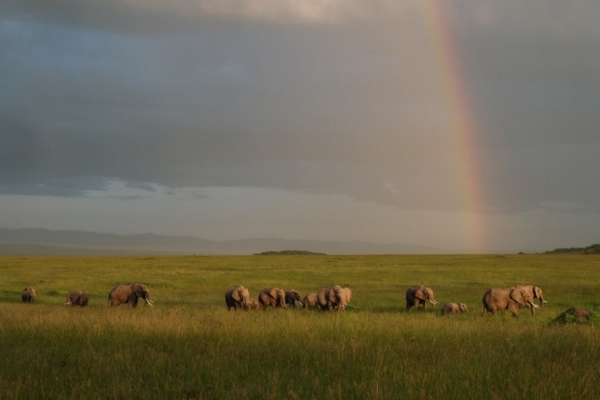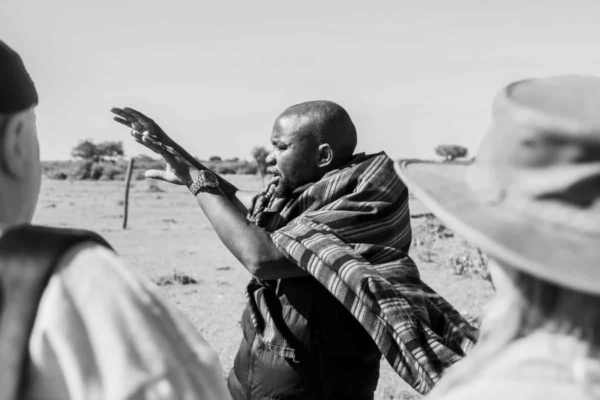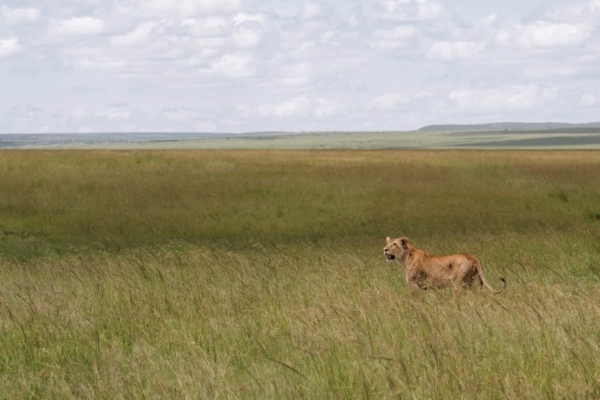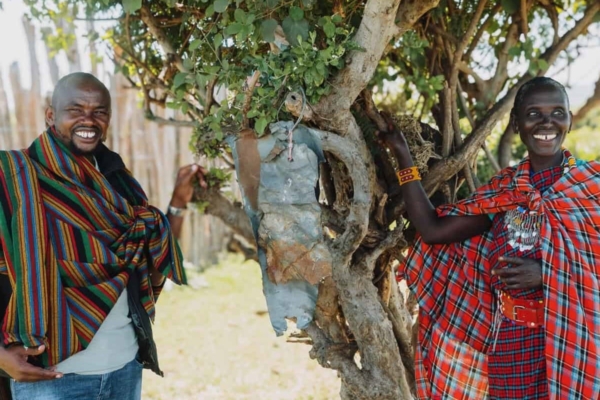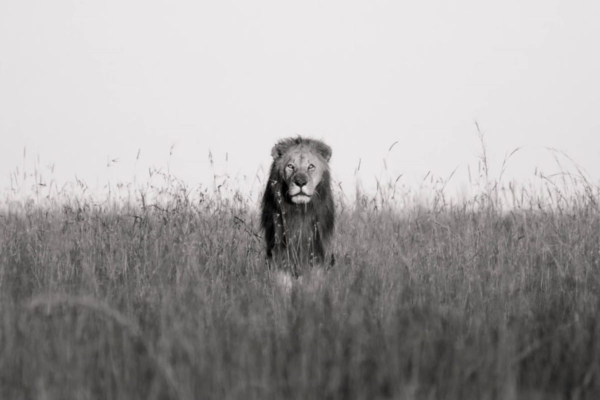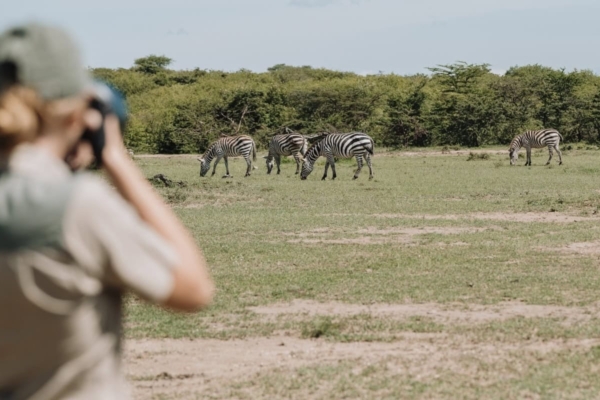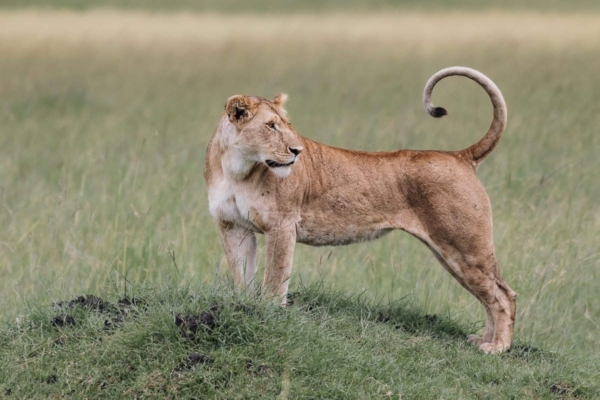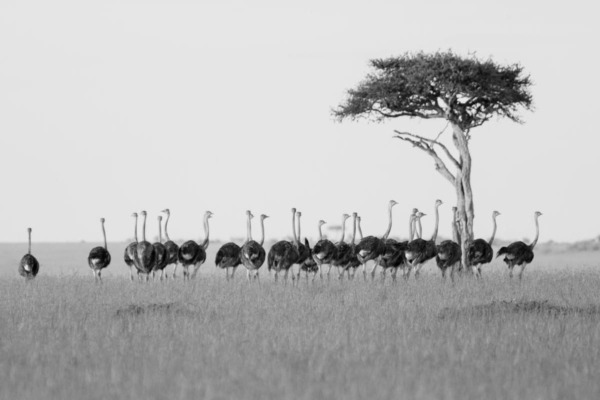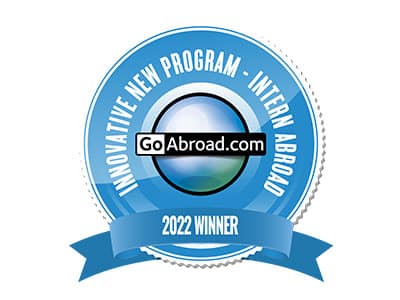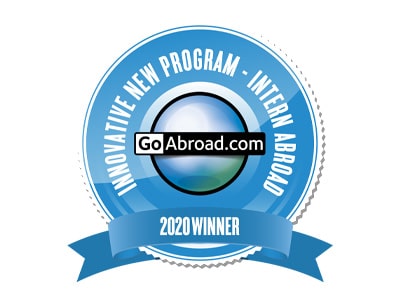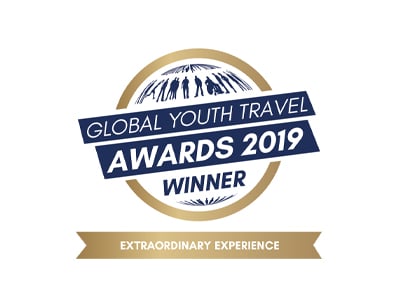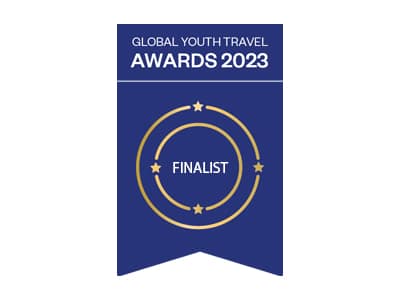Maasai Mara Wildlife Photography & Conservation Photography
PROGRAM OVERVIEW
Explore the iconic Maasai Mara while aiding conservation efforts and building up a standout photography portfolio
The Maasai Mara Wildlife Photography and Conservation Project is an opportunity like no other. Through this uniquely crafted program, you have the chance to explore one of Africa’s premier wildlife destinations while contributing to valuable conservation work and expanding your portfolio under the tutelage of seasoned wildlife photographers – all at a pocket-friendly price!
This iconic nature reserve is world-renowned for many reasons. With its healthy populations of lion, leopard, elephant, and buffalo the Mara is a haven for Africa’s lionized species. Now, picture all these incredible animals spread out through the reserve’s rolling grasslands, open savannah, meandering rivers, and formidable hills and you are transported to this picturesque sanctuary. You will spend your time shooting, editing, critiquing, and showcasing your photographs with a group of equally enthusiastic wildlife photographers and conservationists.
During your stay, you will also have the opportunity to take part in conservation work and community outreach programs aimed at advocating for wildlife preservation. In addition, you will explore the surrounding community and immerse yourself in the Maasai culture. With all these incredible experiences, you’ll come back from this program with a deeper appreciation for wildlife, understanding of diverse cultures, and a stunning portfolio of photographs.
ORGANIZATION
Penda is a dynamic social enterprise that employs photography to curate unforgettable experiences while generating positive change. With Penda Photo Tours, you can participate in photography workshops all around the world that focus solely on taking amazing pictures. Whether you want to photograph the Big Five in South Africa, encounter Mountain Gorillas in Rwanda, learn about street photography in Cuba, or photograph Brown Bears in Alaska, Penda has got you covered. All workshops are led by professional photographers who confidently guide participants to improve their skills throughout the experience. Penda strongly believes in the power of photography to do good, which is why many of their programs, like the Maasai Mara Project, directly support conservation efforts and positive grassroots initiatives.
TASKS & REQUIreMENTS
This photography and conservation program is a unique way to experience the Maasai Mara; as a wildlife photographer and conservation volunteer. As a wildlife photographer, you will spend your time shooting, editing, critiquing and showcasing under the guidance of our experienced photography instructors – Hanna Wigart and Sam Turley – and in the company of equally enthusiastic peers. Your instructors will guide you on ethical wildlife and cultural photography practices, offer tutelage on different photography skills, and help you build a stand-out portfolio.
You’ll also be contributing to local wildlife conservation efforts in a tangible way. As a wildlife volunteer you will tag along on wildlife counting exercises and field patrols with game rangers, this will include setting up camera traps. In many ways, you will be doing a bit of both photography and conservation work. For example by photographing conservation work such as road maintenance, mapping, soil erosion control, and invasive species removal for research and advocacy.
If your stay is longer than two weeks, you will have more time to explore this special place by diving deeper into conservation work and further exploring different wildlife photography techniques and opportunities.
RESPONSIBILITIES
- Assisting wildlife game rangers with wildlife counts
- Photographing conservation work
- Setting up and retrieving camera traps
- Engaging in intercultural dialogue with WTC students, Maasai herders, and the Mara community
- Presenting your photography work to the project group
REQUIREMENTS
- To qualify for this Maasai Mara Wildlife Photography and Conservation Project, you need to have basic photography skills to join. You don’t have to be a seasoned pro, but you do need to have a good camera, decent technical skills, and some experience – we will adapt your projects to your photography level.
- Bring your own SLR camera and a range of lenses; ideally including a wide angle lens, a tripod or bean bag, a sturdy camera bag, and a laptop
- An ability to work fairly independently
- A passion for using photography as a tool for positive change
WHERE YOU’LL STAY
You’ll be staying at the Wildlife Tourism College, a school located in the Pardamat Conservation Area in the Maasai Mara ecosystem. The college is a great place to learn about wildlife conservation and tracking. You’ll be in a comfortable safari tent with single occupancy or two-person sharing (participants’ preference) and sharing the communal spaces with research volunteers and local Maasai students. Because there are no fences around the campus, animals may come into the campsite, presenting a great opportunity to (safely) practice close-up wildlife photography.
Safety & Support
Safety & Support
Kenya is generally a safe destination for travelers. However, it is still advisable to take the usual precautions when traveling, such as keeping valuable items out of sight, avoiding walking alone at night, and staying aware of your surroundings. In the Mara, it is possible that animals venture through the Wildlife Tourism College so you will be escorted to bed by the Maasai Warriors (Askaris), after dark. There are also wildlife rangers around the campus 24/7, and all game drives will be accompanied by a knowledgeable wildlife guide.
Communication
Communication
There is Wifi connectivity at all accommodation sites. You can also consider getting a local SIM card if your phone is unlocked for international use, or setting your phone’s status to roaming, depending on your provider’s rates. But it is important to remember that within the reserve, cell service is understandably low.
Meals
Meals
Meals are prepared by a local chef employed from the community and there is a common area where you can eat and socialize with others on campus. Three meals and drinking water are provided daily. Breakfast is continental style. Lunch and dinner is normally a hot meal, with a varied menu that incorporates local and international cuisines. We can accommodate most dietary requirements if notified before your arrival.
Location details
Location
Kenya is home to some of Africa’s most famous national parks and game reserves, including the Maasai Mara, which is renowned for the annual wildebeest migration. In addition to the migration, the Maasai Mara is home to a wide variety of wildlife, including lions, leopards, cheetahs, elephants, and giraffes, among others. Outside of the exciting activities lined up on your itinerary, you can also enjoy hot air balloon rides, visit the famous Sheldrick Elephant & Rhino Orphanage, or head to the coast and enjoy the beach and warm waters of the Indian Ocean at Mombasa Beach, Watamu Beach, and Diani Beach.
DATES & RATES
Fee Breakdown
You can join the program for two week or three weeks, with arrivals on Sunday.
Start dates (2025): August 3 / August 10
What you’ll pay (2025 rates)
1 week (8 days) USD 2,745
2 weeks (15 days) USD 4,795
3 weeks (22 days) USD 6,455
Inclusions
- Accommodation in a shared room
- Three daily meals from Monday to Sunday
- Airport transfers upon arrival and departure
- Workshops and mentorship: during the first three weeks of the program, Hanna Wigart will be the photography guide, and during the last three weeks, Sam Turley
- All transport costs as per your program itinerary
- Safety enforcement with wildlife rangers and guides present 24/7
- Assistance with your visa arrangement & other preparations
- Supervision and support on the ground
- Troubleshooting if needed
Exclusions
- Flights to Jomo Kenyatta International Airport
- Visa and medical/travel insurance costs for the duration of your placement – must include cover for repatriation
- Drinks, snacks, and items of personal nature (f.e. curios, gifts, clothing)
- Costs for additional excursions or activities.
GALLERY
FAQs
Some of our most commonly asked questions for programs in Kenya.
What can I expect from an internship in Kenya?
Kenya, often admired through the lens of social media and television, is a destination many dream of experiencing firsthand. Internship opportunities in this enchanting country offer you the chance to immerse yourself in its captivating landscapes and rich culture, all while gaining valuable work experience. Beyond the internship, your journey extends to an adventure as you travel and expose yourself to new environments. The scope for exploring is boundless, providing you with a unique perspective from both a local and a tourist. With thoughtful planning, you can carve out time before or after your internship to explore Kenya extensively, from the majestic Mount Kilimanjaro to the captivating Masai Mara and the breathtaking Great Rift Valley, or any other destination that captures your imagination. Don’t overlook Tanzania, conveniently neighboring Kenya; consider a side trip to the Serengeti or the vibrant island of Zanzibar.
Will I be able to explore Kenya during my internship?
Absolutely! Our internship programs offer more than just valuable work experience; they encourage exploration and cultural immersion. Whether before, after, or even during your internship, you’ll have the flexibility to explore the diverse landscapes, vibrant culture, and beauty that Kenya has to offer. Simply coordinate with your supervisor to request time off, and you’re ready to embark on your adventure! We are committed to providing a holistic experience that extends beyond the workplace, ensuring you create lasting memories and expand your horizons in this remarkable part of the world.
Does my internship qualify for university credits/requirements?
It’s essential to consult your university’s academic advisor to confirm whether your internship qualifies for university credits or meets specific academic requirements. This will ensure you take the necessary steps to receive recognition of your internship experience within the academic framework. We can also assist with purchasing transfer credits to add alongside your internship experience.
Will I receive compensation during my internship in Kenya?
Regrettably, internships with nonprofit organizations are unpaid; however, there are various avenues to secure funding for your internship. Despite the absence of monetary compensation, the wealth of knowledge and the array of opportunities for both professional and personal growth are truly invaluable. This experience serves as an investment in your future, equipping you with skills and insights that extend far beyond financial considerations.
QUICK FACTS
HIGHLIGHTS
- Incredible wildlife photography opportunities (some of the very best in Africa)
- Have an opportunity to photograph the Great Migration
- Professional tutoring by wildlife photographers
- A chance to support wildlife conservation efforts
- An opportunity to experience exclusive game reserves without paying luxury prices
- Flexiblity of joining for 2 to 6 weeks.
HOW TO APPLY
If you’re ready to apply for this internship, here’s what to do:
APPLY
Fill in the application form (it will show in a new screen) which includes sharing your CV to us.
SPEAK WITH AN ADVISOR
We’ll set up a call with you to go through your application.
INTERNSHIP MATCHING
If we feel it’s a good match, we’ll set up a call between you and the supervisor for this internship.
PAYMENT
If everyone’s happy, we’ll provisionally confirm your placement! We’ll then send you the invoice for the deposit, getting started with the booking process and all the info you need.
CONFIRMATION
Only once we receive payment of the deposit your placement will be confirmed.
NEED TO MAKE AN ENQUIRY FIRST?
Or if you’d just like to ask us some questions about this internship first, just fill in the contact form below. We’ll be happy to assist!
"*" indicates required fields
RELATED PROGRAMS
RELATED BLOGS
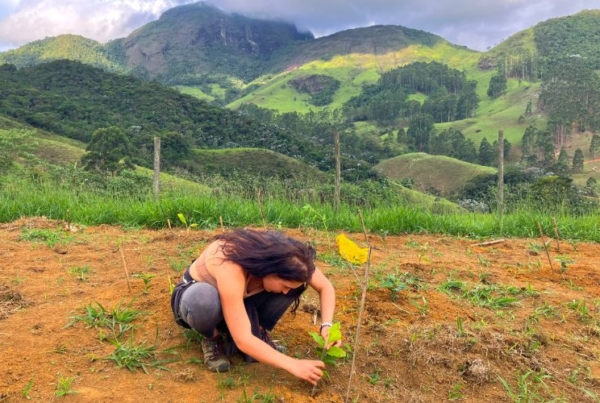 What to Expect From an Environmental Conservation Internship in Brazil
What to Expect From an Environmental Conservation Internship in Brazil
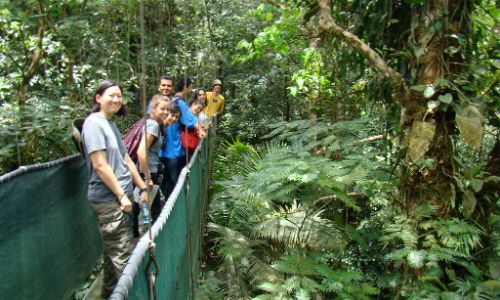 7 Reasons to do an Environmental Management Internship
7 Reasons to do an Environmental Management Internship
7 Reasons to do an Environmental Management Internship
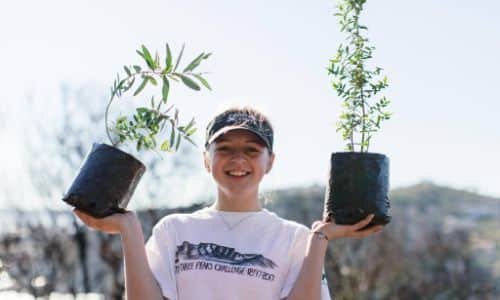 What is a Sustainable Internship?
What is a Sustainable Internship?

